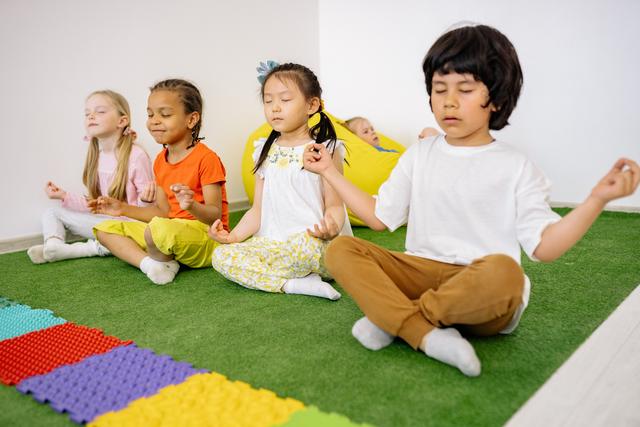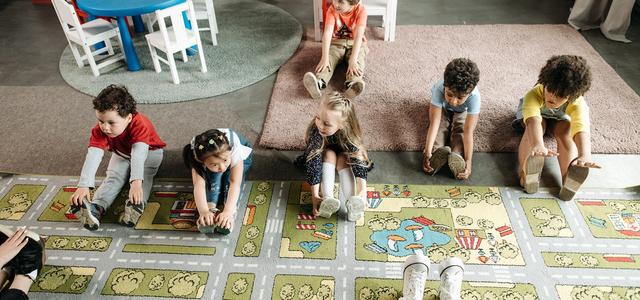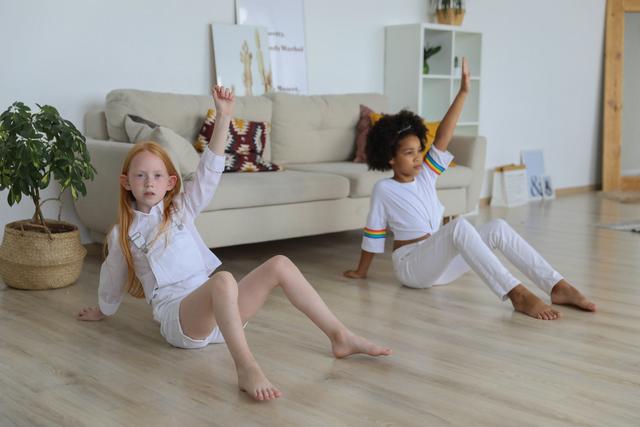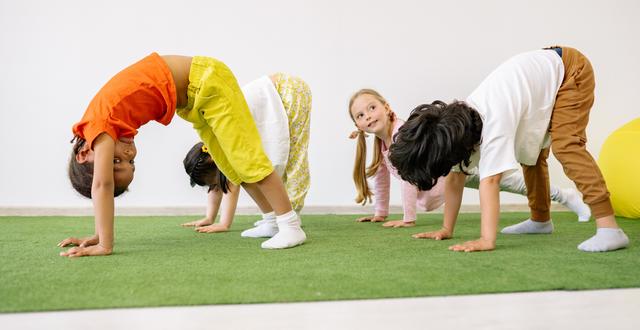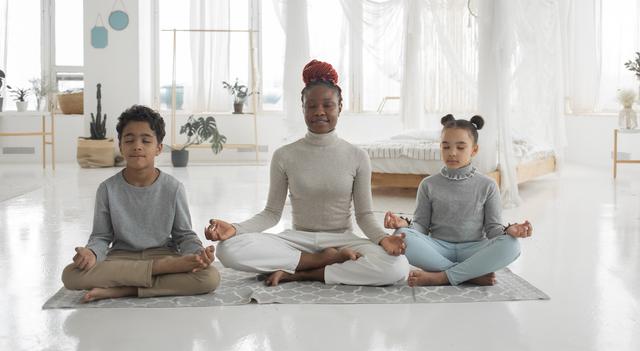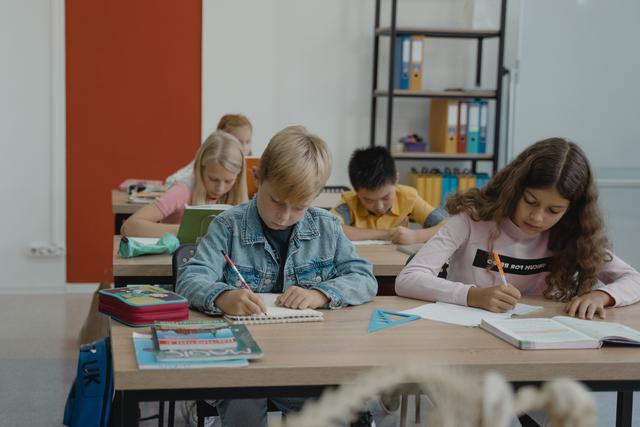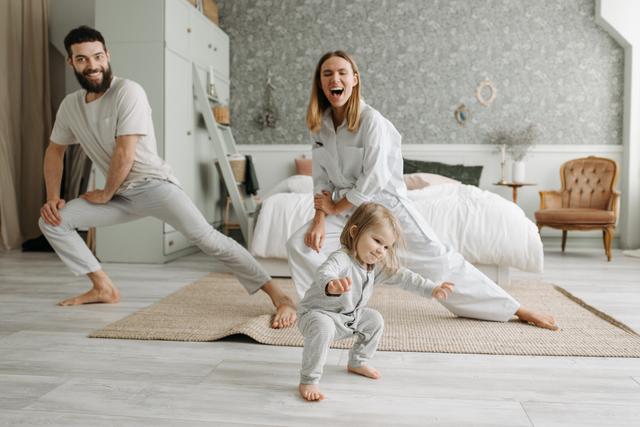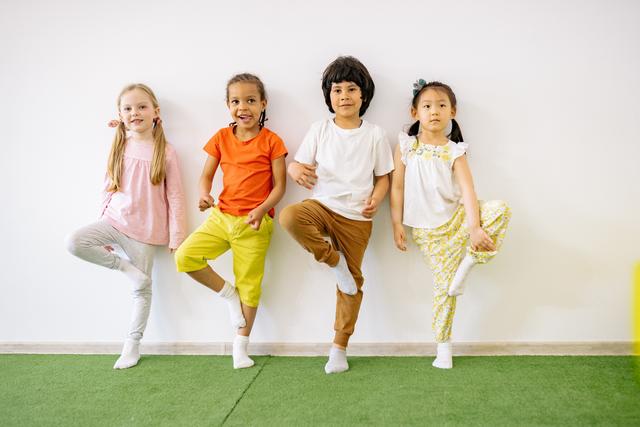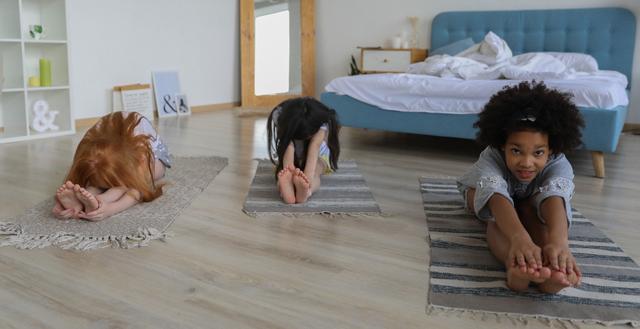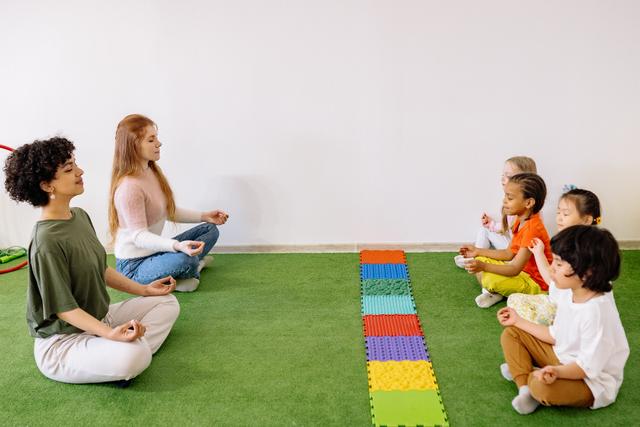Yoga Articles
Yoga For Kids In The UK
Yoga for kids has seen a remarkable rise in popularity across the UK, establishing itself not only as a pleasurable activity but also as a vital part of educational curriculums in numerous schools. Originating from the historical depths of India over five millennia ago, yoga made its way to the UK in the late 19th and early 20th centuries, introduced by visiting Indian spiritual leaders. It wasn't until the vibrant cultural shifts of the 1960s, however, that yoga began to embed itself deeply in the British lifestyle.
The 1970s marked a significant evolution in the practice of yoga within the UK, especially concerning younger demographics. Yoga programmes specifically tailored for children began to sprout, encouraging a new generation to embrace this practice of mindfulness and physical health. Today, yoga sessions for children are routinely found within school programmes and a variety of community and leisure centres, catering to a growing interest and acknowledgement of its value in child development.
Yoga classes tailored for children often focus on fun, incorporating games and stories with traditional yoga poses, that are designed to be safe and accessible for young learners. These classes are available across the UK, from major urban centres to smaller communities, reflecting a nationwide acceptance and enthusiasm for children's yoga. The inclusion of yoga in educational settings speaks to a broader recognition of its importance in fostering physical fitness and psychological wellness from a young age. Through these sessions, children are not only engaging with a cultural practice rich with history but are also laying the groundwork for a balanced and healthy lifestyle.
The Benefits of Yoga
Yoga offers a myriad of health benefits for children, making it a valuable activity for their physical and mental well-being. By engaging in yoga, children can significantly enhance their flexibility. This is crucial as it aids in the development and maintenance of healthy muscles and joints. Moreover, yoga plays a pivotal role in improving children's focus and concentration. These skills are not only beneficial in their academic pursuits but also enhance their personal lives by fostering mindfulness.
Additionally, one of the most profound impacts of yoga is its ability to reduce stress and anxiety in children. In an era where children can easily become overwhelmed, yoga provides a natural and effective way to manage stress, leading to better mental health and potentially improved academic performance. Furthermore, the practice of various yoga poses helps children to build strength and improve balance. These benefits are practical and can enhance performance in sports and everyday activities.
Another vital aspect of yoga is its positive impact on posture. Regular practice helps children develop good posture, which is linked to improved breathing, reduced back pain, and overall better health. Encouraging children to participate in yoga can thus provide them with tools to foster their physical health and psychological resilience.
FAQs
Q: Is yoga safe for kids? A: Yes, yoga is generally considered safe for kids when taught by a certified yoga instructor. Modifications and adaptations can be made to accommodate children's unique needs and abilities.
Q: What age is appropriate for kids to start practicing yoga? A: Children as young as 3 or 4 years old can begin practicing yoga. Classes specifically designed for younger children may be more appropriate to address their developmental stages and ensure their safety and enjoyment.
Q: How often should kids practice yoga? A: It is recommended that children practice yoga at least twice a week to experience the full benefits, such as improved flexibility, strength, and mental clarity.
Q: What should kids wear for a yoga class? A: Children should wear comfortable clothing that allows them to move freely and easily. Avoid clothes that are too tight or too loose, as they might restrict movement or cause discomfort during various yoga poses.
Q: Can kids with special needs or disabilities practice yoga? A: Yes, yoga can be adapted and modified to accommodate children with special needs or disabilities. Working with a certified yoga instructor who has experience in handling unique needs is crucial to ensure that all practices are safely conducted and beneficial to the child.
